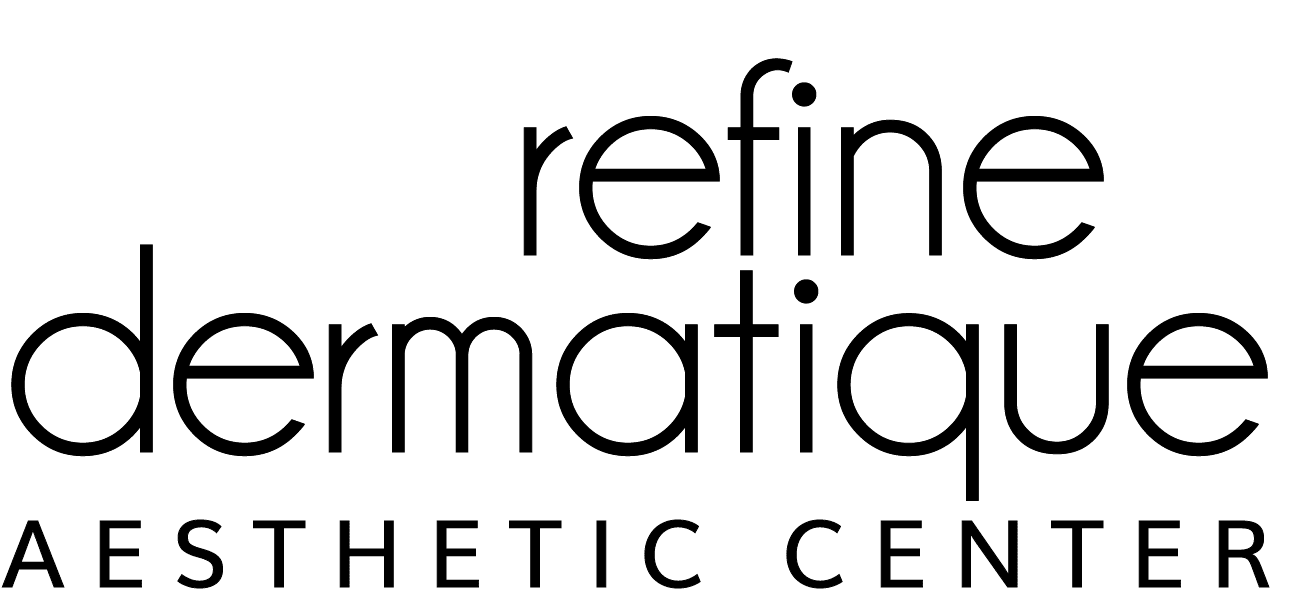[et_pb_section fb_built=”1″ _builder_version=”4.4.5″ custom_padding=”32px||0px|||” da_disable_devices=”off|off|off” da_is_popup=”off” da_exit_intent=”off” da_has_close=”on” da_alt_close=”off” da_dark_close=”off” da_not_modal=”on” da_is_singular=”off” da_with_loader=”off” da_has_shadow=”on”][et_pb_row _builder_version=”4.4.5″ custom_padding=”||16px|||”][et_pb_column type=”4_4″ _builder_version=”4.4.5″][et_pb_text _builder_version=”4.4.5″]
Like it or not, face masks are now required in many places. As a result, we’ve had many questions about lower-face acne breakouts, or what the internet now calls maskne.
[/et_pb_text][et_pb_text _builder_version=”4.4.5″]
What is Causing Maskne?
A face mask can contribute to acne breakouts in several ways. First, face masks generally involve increased touching of our face. Between putting the mask on, taking it off, and the numerous adjustments throughout the day, you’re touching your face a lot. This is an extra opportunity for acne-causing bacteria to cause a breakout.
Next, there’s friction at the points of contact with your face. This commonly around the nose and upper cheeks, the friction of the mask creates irritation and traps dirt and sebum below the surface of the skin, making the skin prone to a breakout.
Finally, there is increased irritation from the heat and moisture caused by the mask. This can lead to dry skin, increased oil production, and just more breakouts. All three of these factors can lead to more breakouts when wearing a mask. Luckily, there are some ways you can prevent and treat maskne.
[/et_pb_text][/et_pb_column][/et_pb_row][et_pb_row _builder_version=”4.4.5″ custom_margin=”21px|auto||auto||”][et_pb_column type=”4_4″ _builder_version=”4.4.5″][et_pb_text _builder_version=”4.4.5″ min_height=”1012px”]
Preventing Mask Acne
Before Wearing a Mask
Consider Going Makeup-Free
Makeup and other skincare products can cause extra irritation, especially under a face mask. It’s best to skip these products on the parts of your face that will be covered. Your face is going to be covered by your mask, so no one will know you’re not wearing foundation (it’s a fun little trick!).
Hydrate
Making sure your skin is adequately hydrated before wearing a mask is critical to avoiding breakouts. Use a moisturizer on your face, which will help maintain your skin’s moisture barrier. Many people with acne get the hydration part of their skincare wrong. They assume that if you are experiencing acne, you shouldn’t need to use a moisturizer. Yes – oily skin needs hydration for skin barrier to function correctly. It needs hydration and if you don’t supply it topically, the skin will try to produce more oil to compensate, resulting in more acne– a vicious cycle.
It is best to use a light, oil-free moisturizer that won’t clog your pores. You may need to switch to a lighter moisturizer now if you are experiencing maskne. Also, look for products containing ceramides, which can help maintain your skin’s barrier and reduce irritation.
Use a Clean Mask
When you use a dirty mask, there’s a good chance you’ll be transferring acne-causing bacteria to your face. Make sure you’re using a clean or fresh mask whenever possible. We’ve found that having multiple reusable masks in rotation makes it much easier to always have a clean mask ready.
If a clean mask isn’t possible, try to sanitize the inside. Keeping masks in a clean Ziploc bag between uses can also cut down on the amount of acne-causing bacteria.
Limit Touching and Use Clean Hands
Keeping with the thought of minimizing the chance for acne-causing bacteria to make it to your skin, limit the number of times you touch your face throughout the day. Ensure you have a properly fitting mask that doesn’t require constant adjustment. When you do need to adjust your mask, make sure you wash your hands thoroughly before doing so.
After Wearing a Mask
Cleanse
As soon as you’re done wearing your mask, wash your face with a gentle cleanser. This could be something like Cetaphil or CeraVe, or some of our favorites at the spa include Vivant Green Tea Antioxidant Cleanser or the Alastin Gentle Cleanser. Cleansing your face right after wearing a mask will help remove the build-up, debris, and bacteria that may have accumulated while you had the mask on.
Hydrate Again
After you’ve cleansed your face, proper hydration is important. A good recommendation is the Hyaluronic Acid Serum (or “Blue Juice”, as we call it), is a great choice for making sure your skin is properly moisturized without being heavy or occlusive.
[/et_pb_text][et_pb_image src=”https://shop.refinedermatique.com/wp-content/uploads/2020/06/AdobeStock_283671768-1-scaled.jpeg” alt=”An image of a woman thoroughly cleansing her face with a white lather.” title_text=”Cleansing your face thoroughly after wearing a mask.” align=”center” _builder_version=”4.4.5″][/et_pb_image][/et_pb_column][/et_pb_row][et_pb_row _builder_version=”4.4.5″][et_pb_column type=”4_4″ _builder_version=”4.4.5″][et_pb_text _builder_version=”4.4.5″ hover_enabled=”0″]
Treating Maskne
Don’t Overdo It
Don’t be aggressive with scrubs or other treatments. This can create more irritation and actually make acne worse. Try to be as gentle with your skin as you can.
Don’t Pick or Squeeze
Avoid picking or squeezing any pimples that may have developed. Picking can lead to infection, scarring, and pigment changes. Pimples are best left alone!
Try a Medical-Grade Wash
If you need to take the next step in combating maskne, try a medical-grade wash like the Gly 5/Sal 2 Cleanser. Combining both Glycolic and Salicylic Acids, this cleanser is a soothing one-two punch for acne.
If you feel like you need a quick refresh during the day, a nice, portable option is Refine’s Clear Pads. Soft cleansing pads with salicylic and glycolic acid to remove bacteria and help keep pores gunk-free. They are easy to keep in your bag or in your desk for a quick swipe of the skin under your mask.
Just be careful not to cleanse your skin too much or you could cause dryness and irritation on top of the acne.
Get Help
After trying these steps and you’re still struggling, let us help! Whether it’s through an online acne consultation or an in-office treatment, we can provide help well beyond what’s available over the counter.
Acne can also have a variety of contributing factors, including hormones. With increased levels of stress many are feeling right now, hormone levels can fluctuate. If this is the case, you’ll want a qualified provider to assess your situation and determine if medication may be needed.
[/et_pb_text][/et_pb_column][/et_pb_row][/et_pb_section]
